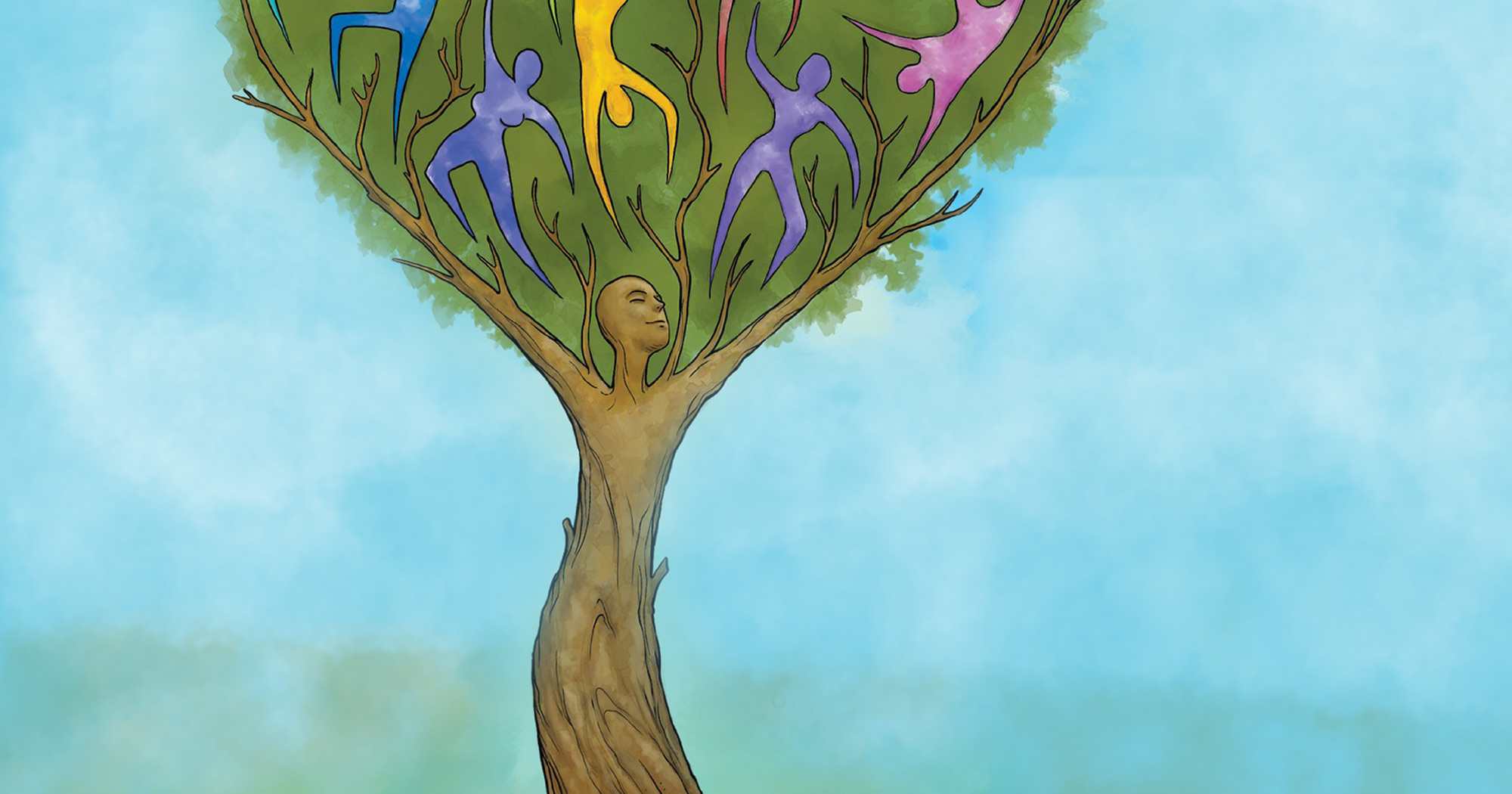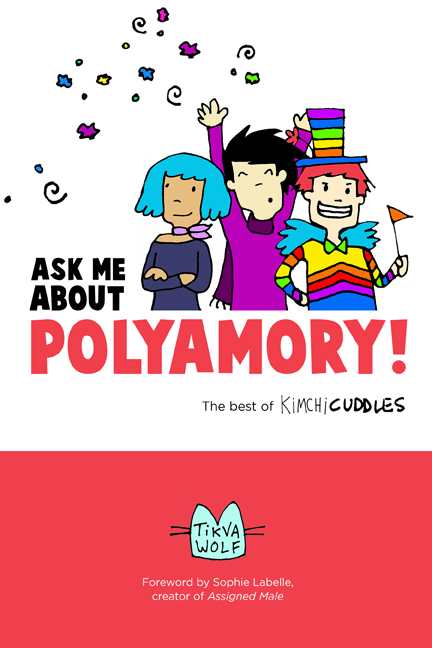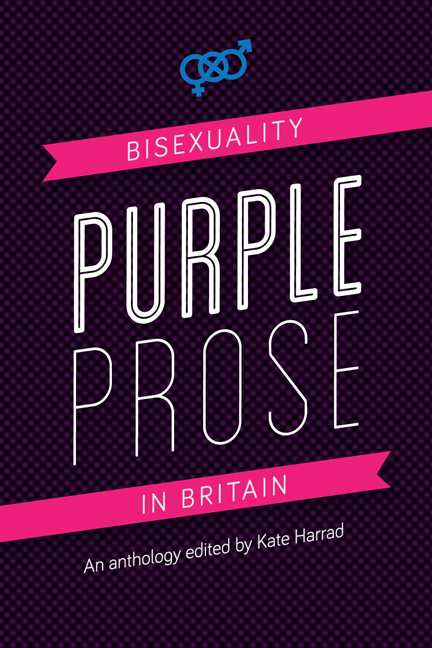Polyamorously Yours ... and Yours: Thorntree Press Redefines Relationships

Those who long for the days when we did not have to share public bathrooms with transgender men and women, or when relationships were defined as “one man and one woman,” are pining away for a time that never really existed. If you ask Eve Rickert and Franklin Veaux, cofounders of Oregon-based Thorntree Press, they’d say we created a myth of what is presumed to be natural, and then tried to force reality to fit the myth.
Thorntree Press, by recognizing the existence of nontraditional relationships and writing openly about them, is pushing the conversation forward even as the nation sputters in fits and starts on the issue. I asked Eve and Franklin to help define what polyamory is, and what it isn’t, in the interview below.
The story of your founding is a familiar one for indie publishers. You sent your ideas to traditional publishers, who told you it couldn’t be done. So far, have the naysayers been right?
Not at all.
The idea for our first book, More Than Two, was shopped around to a large number of publishers and agents–about fifty in all. Many of them sent very similar replies, along the lines of, “We don’t see an interest in polyamory, and we don’t think a how-to book on this subject will sell, but if you’d like to submit a memoir, we’d love to publish that.”
We set up an indie publisher and did both books, the how-to and the memoir. The memoir has been modestly successful, but the how-to book has been a runaway hit, selling over 25,000 copies in its first eighteen months. Apparently the naysayers have been the exact opposite of right.
Apparently, millennials have rediscovered polyamory. It’s almost as if the ’60s never happened, though. Is the practice fundamentally different today than in previous generations?
Considerably so. Polyamory bears little resemblance to the “free love” movement of the 1960s.
Free love advocates talked about open sexuality, but often failed to acknowledge the realities: physical intimacy is, for most of us, the gateway to emotional intimacy. They didn’t really consider how to have multiple simultaneous committed romantic relationships.
Over the past couple of decades, the polyamory movement has grappled with exactly that question: Sex aside, what does it look like to have multiple romantic relationships? How is it possible to be in love with, and often be committed to, more than one person at a time? What relationship skills do we need to make it work? How can we relate to multiple romantic partners in ways that are healthy and that support positive, loving, long-lasting relationships? What does it mean to raise children and form families that are non-monogamous? How do the power dynamics work? Who does the laundry?
When we look at modern poly communities, which largely got their start in the early 1990s, we see a process of developing ways of relating and building healthy, dynamic relationships that go way, way beyond sex. Free love was mostly about having sex; polyamory is about having relationships, with all the joys and challenges that go along with that.
Don’t get us wrong, sex is fun and healthy and great, but you need more than sex to build a life. That’s what polyamory is about—building lives that just happen to involve more than two romantic partners.
Those of us who have been part of the polyamory movement for the past few decades have learned a lot of lessons and made a lot of mistakes. The millennial generation is, I think, the first generation that does not have to fight to try to build a new way of relating: Many of them are growing up in a world where polyamory is one choice among many, and there’s not a default assumption that everyone has to live the same way.
We think that’s amazing. We think the millennials are going to be an awesome generation. They are taking to polyamory naturally, and we they’re really going to show us how to do it well.
Stories From The Polycule is an INDIEFAB finalist. These are stories from real-life polyamorous relationships. What’s the biggest takeaway from this book?
There’s more than one “right” way to have a relationship. Families are different from each other. Different families can be totally different in form and function and the people in them can still be strong, vibrant, happy, and healthy.
Ever since the 1950s, a lot of folks have been fed the idea that all families should look the same way: two heterosexual people, two kids, a dog, a white picket fence. The nuclear family has never been the norm, historically speaking, yet for a lot of folks, there’s this pervasive sense that that’s the way it’s always been and that’s the way it will always be. Surprise! That’s not true (and really, it never has been).
Stories from the Polycule takes us inside families that look very different from the fairy-tale myth of the “traditional” nuclear family, and shows us that healthy, loving polyamorous families can be great places to live.
Are there any upcoming titles you’re excited about?


We have two amazing books coming out this fall, Ask Me About Polyamory! The Best of Kimchi Cuddles and Purple Prose: Bisexuality in Britain.
Ask Me About Polyamory! is exciting because as a comic, it will be the most accessible introduction to polyamory on the market to date. The creator, Tikva Wolf, has a huge following for her Kimchi Cuddles webcomic, with over 15,000 Facebook followers and 300 supporters on Patreon, and the crowdfunding for her book was fully funded less than 48 hours after it launched. It’s a very different book than More Than Two, but we think it will easily be as successful.
Purple Prose is a big step for us because it’s the first book we’re doing that’s not focused on ethical nonmonogamy. We really want to expand our list to cover other topics in relationships and sexuality—we don’t want to get pigeonholed as only publishing poly books! Purple Prose is a step in that direction. It’s also an important book for us because—like Stories From the Polycule—it showcases many authors who are people of color, disabled, gender nonconforming.
Our 2017 and 2018 books are going to take us further with improving the diversity of topics we cover and writers we promote. We have books lined up on consent culture, breakups, reimagining classic romantic fairytales, intersectional nonmonogamy, and confronting birth and death within nontraditional families.
Nontraditional relationships are front-and-center in the news these days. Is this a good time to be Thorntree Press?
When we founded Thorntree Press, we wanted to amplify the voices of people who wanted to examine the polyamory (and more broadly, non-traditional relationship) movement. We seek out people who advocate values like empathy, compassion, communication, and respect, and we’re particularly interested in offering a platform to groups who traditionally have not had one.
Thorntree Press, for us, is an important part of that. Awareness of nontraditional relationships is skyrocketing. More and more people are realizing there’s more than one right way to live, and are looking for information about things like polyamory. We think this is a critical time in the development of polyamory, and we want to help create better awareness of how to make happy, healthy polyamorous relationships work.
This carries into other books beyond poly books. For example, almost no books on bisexuality exist—there isn’t even a BISAC subject category for bisexuality! The bookstore shelves are filled with gay and lesbian books, but there’s almost nothing for people who identify as bisexual—and that’s a lot of people! With Purple Prose, we’re hoping to change that.

Howard Lovy is executive editor at Foreword Reviews. You can follow him on Twitter @Howard_Lovy
Howard Lovy
